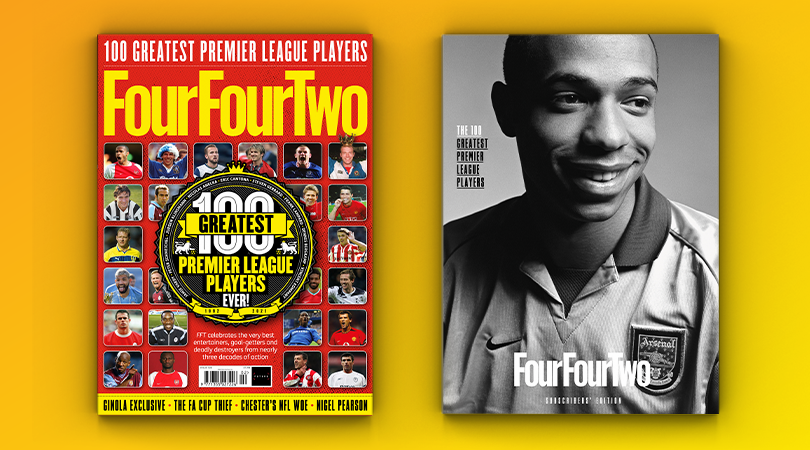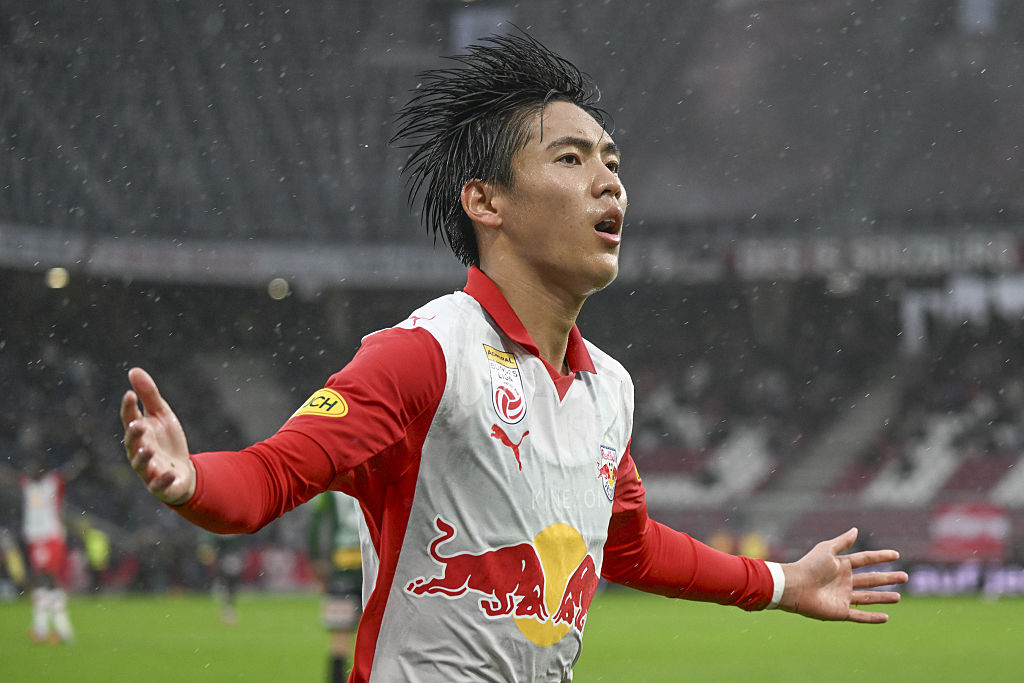What is it about Southampton's approach that makes them susceptible to a 9-0 defeat?
Ralph Hasenhuttl's Southampton play with intensity and have a clear gameplan – but an early sending off can see the whole thing unravel

To lose 9-0 once is unfortunate. To do so twice is both familiar and freakish, a one-off that has happened twice. Ralph Hasenhuttl’s Southampton may manage the incongruous double of equalling the joint heaviest defeat in Premier League history – a record they already shared with Ipswich – and registering a top-half finish. For the second consecutive season, they have already lost 9-0 and beaten the reigning champions.
All of which sounds rather illogical. The infamously inept Derby team who only amassed 11 points in a season never conceded more than six goals in a game. Sheffield United, who prop up the table now, have not sieved five. Meanwhile, Southampton, whose defensive record is otherwise among the eight best, whose goal difference on the road was zero until this week, have been hit for nine again.
There are common denominators and contributory factors. Like Leicester 15 months earlier, Manchester United were ruthless and unrelenting, pushing on rather than settling for four or five. The finishing was excellent: those 18 goals came from 29 shots on target. Southampton have fielded callow teams, with Yan Valery and Kayne Ramsay taking turns in defence. They were shorn of nine injured players on Tuesday and Hasenhuttl’s is a small squad; others are better positioned to cope with absences. VAR had an influence in both games but, as BT Sport is the spiritual home of tedious whingeing about VAR, FourFourTwo needn’t be.

And in both, Southampton collected the season’s earliest red card. Ryan Bertrand’s 12th-minute sending off against Leicester feels positively slow, given how fast Alex Jankewitz made his exit at Old Trafford. They were deserved dismissals but it highlighted a problem with Hasenhuttlball. Saints’ struggles with 10 men have shown that a high-energy, high-pressing game that requires a collective commitment from everyone is rendered redundant by a red card. Plan B – sit back, play 4-4-1 – did not come naturally to a team accustomed to doing something very different. As an ersatz left winger, Danny Ings let Aaron Wan-Bissaka escape behind him to score the goal that opened the floodgates, but the issues go beyond that.
It is tempting to recall the words of another fervent gegenpresser. “Our identity is intensity,” said Jurgen Klopp last season. Strip Southampton of that intensity and rather little has remained; primed to chase and harry in a pack, they are ill-equipped to retreat and stand off. That even their preferred style of play carries risks was shown when Hasenhuttl’s Saints lost 5-2 and Klopp’s Liverpool 7-2 in swift succession.
It is also worth noting the experience of another who overachieved with a Klopp-esque approach. David Wagner got Huddersfield promoted, started off pressing in the Premier League, encountered a Tottenham team who picked them apart with three goals in the first quarter of the game and had to change. Huddersfield’s hybrid – pressing against some, defending deep against others – kept them up that season, but came at a cost the following year; their identity was gone.
That is not to suggest Southampton are set for a similar slide. Indeed, the fact they claimed 71 points between their 9-0 thrashings shows the extent to which Hasenhuttl engineered a revival and how his methods work more often than not. But their tendency to drop points from winning positions is another indication that a side primed to play front-foot football can be ill-suited to situations that call for defending.
The best features, fun and footballing quizzes, straight to your inbox every week.
Teams who tend to be drilled to play with deep defences, in two blocks of four, camped on the edge of their own box have a greater grounding in the task required when reduced to 10. Tony Pulis’ sides don’t concede nine; Hasenhuttl’s have a higher ceiling but a lower floor. It still seems ludicrous that, in 29 seasons of Premier League football, a manager of his calibre has 67 percent of the 9-0 defeats on his CV, but if the scorelines feel flukes, glitches in the gameplan may mean that, given an extraordinary combination of circumstances, there are few good teams who are more likely to suffer a heavy defeat.
While you're here, subscribe to FourFourTwo today and save 37%. All the exclusive interviews, long reads, quizzes and more but with more than a third-off normal price.
NOW READ
DEADLINE DAY The 10 worst January transfers EVER
RICHARD JOLLY Liverpool have had to abandon their transfer strategy in signing Ben Davies and Ozan Kabak - but both moves make sense
LIVERPOOL Pain, poverty, bribery and glory: the extraordinary rise of Roberto Firmino
Richard Jolly also writes for the National, the Guardian, the Observer, the Straits Times, the Independent, Sporting Life, Football 365 and the Blizzard. He has written for the FourFourTwo website since 2018 and for the magazine in the 1990s and the 2020s, but not in between. He has covered 1500+ games and remembers a disturbing number of the 0-0 draws.
 Join The Club
Join The Club






